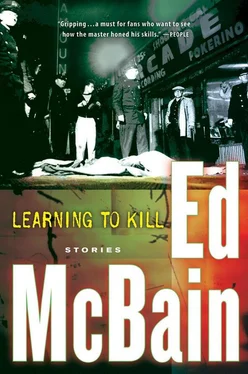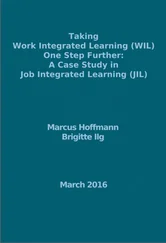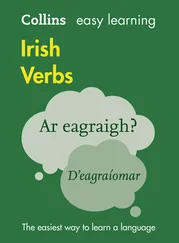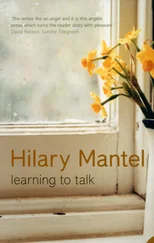Ed McBain
Learning to Kill: Stories
This is for my wife, Dragica—
who wasn’t there then,
but who is always here for me now.
All of the stories in this collection were written between 1952 and 1957. During part of that time, I was working at the Scott Meredith Literary Agency, earning forty dollars a week at first (and later forty-five dollars a week) as “Executive Editor,” an exalted title that meant I handled the agency’s “commissionable” clients — among whom were Arthur C. Clarke, Lester del Rey, R G. Wodehouse, John Jakes, Poul Anderson, Frank Kane, Helen Neilsen, Richard Prather, Steve Frazee, and a great many other well-known (at the time) mystery, science fiction, and Western writers.
The agency also handled wannabe writers who’d never been published and who paid a fee to have their manuscripts read and analyzed. If one of the agency’s fee readers thought a manuscript had possibilities, he passed it on to me. Occasionally, we sent one of these out to market. But for the most part, I was working with professional writers who were regularly selling their manuscripts to book and magazine publishers all over New York City.
I had stumbled upon this job quite by accident.
At Hunter College, I was an English major (an English “concentrator,” as it’s now called) and my minors were dramatics and education. The dramatics minor was for fun. The education minor was for insurance. I already knew in college that I wanted to be a writer, but I did not think I’d set the world on fire the minute I stepped out on my own, and I figured a teaching license would help support me while I wrote the Great American Novel. It did indeed support me for a total of seventeen days. Like millions of other World War II veterans, I was graduated in June of 1950, and that fall I began teaching with a so-called emergency license at Bronx Vocational High School. I despised the job, and I quit after I got my first paycheck.
Jobs were scarce in that fall of 1950.
I took a nighttime job with the Automobile Club, answering calls from motorists in distress, and then I found a daytime job with a company called Regal Lobster on West 72nd Street, another job entailing phone calls, this time to restaurants asking if they’d “like a quote this morning on some live Maine lobsters.” I had meanwhile decided that the only way to become a published Writer was to get a job with either a book publisher or a magazine, and so I prepared a catchy résumé and sent it out hither and yon. By the winter of 1951, I’d had no responses.
It must have been in February that I saw a blind ad in the New York Times’s Help Wanted columns. It read something like this:
EDITOR
No experience necessary. Must be familiar with book and magazine markets. Reply to box number...
Well, I didn’t have much experience with book markets, but I’d read a lot of books. And during my two years in the Navy, and my four years in college, I’d sent dozens of short stories to nearly every magazine in existence, so I was certainly familiar with magazine markets. In fact, the walls of the bathroom in the apartment I shared with my then-wife and my firstborn son, on North Brother Island in the middle of the East River, were papered entirely with rejection slips. Besides, the ad said “No experience necessary,” didn’t it?
So I wrote a witty letter, and sent it off to the indicated box number, and a week or so later I picked up the phone at Regal Lobster, and my wife was on the other end, and she told me she’d got a call from a man named Steve Marlowe who said he wanted to interview me regarding my letter about the editorial position. On my lunch hour that day, I took the subway downtown, walked crosstown to Forty-seventh Street and Fifth Avenue, entered 580 Fifth, took the elevator up to the eighteenth floor, walked down the hall to room 1806, and there on the upper glass panel of the door were lettered the words:
SCOTT MEREDITH
LITERARY AGENCY
My hand was on the doorknob.
I thought, A literary agency?
Who the hell wants to become a literary agent?
I almost turned away from that door.
I almost walked away from the greatest opportunity life would ever offer me.
Instead, I turned that doorknob, and I opened that door, and stepped into a small waiting room. There was a closed glass panel on the right-hand wall. There was a little push button set on a ledge before the panel. I pressed the button. The panel slid open. I told a pretty blonde receptionist who I was, and she asked me to take a seat, please, and the glass panel slid shut again. I sat on a sofa on the opposite wall. In a few minutes, a man of about my age — I had just turned twenty-four in October of 1950 — came out, shook my hand, introduced himself as Steve Marlowe, told me he was the current Executive Editor at the agency, advised me that they’d been impressed by my letter, and asked if I would mind taking a written test. I said I would be happy to.
He led me into the inner office where there were half a dozen desks with young men behind them, all of them either reading or typing, and then he showed me to an empty desk with a typewriter on it and a chair behind it. He gave me a manuscript titled “Rattlesnake Cave” and asked me to read it and to write a letter to the author, telling him why I thought the story was either salable or not salable. He said I had fifteen minutes. I looked at my watch and began reading.
The story was absolutely terrible.
I later learned that it had been written by Lester del Rey, one of the pre-eminent science fiction writers of the day, and that it was deliberately awful. I didn’t know that at the time. I merely wrote a letter telling the supposed real author exactly what I thought of the story.
Steve Marlowe collected the letter when I’d finished it, asked me to wait outside again, and came out some twenty minutes later to tell me he’d showed the letter to Scott, and that they would like to hire me for a two-month trial period. He told me I would be handling the agency’s professional clients, and that Scott himself would be my immediate superior. He told me the job paid forty dollars a week. He told me I would be replacing him as Executive Editor.
I have to tell you, I was singularly unimpressed.
The office looked shabby and small, the salary was less than I was earning at Regal Lobster, and a literary agency did not seem the stepping stone I had in mind for a burgeoning literary career.
I said, “Why are you leaving the job?”
He said, “Because I’m making so much money selling my own stuff that it doesn’t pay to stay here anymore.”
My ears shot up.
“When do I start?” I asked.
I did not bring in a batch of my own short stories until the two-month trial period was over, and I was sure the job was truly mine. I gave them to Scott on a Friday afternoon, just before quitting time, and he promised to read them over the weekend. On Monday morning, after he’d read all the mail, he buzzed me into his office. As was our usual working routine, we discussed responses to the various letters from our clients, and he handed me the stack of manuscripts we’d received from them that day, and then he said, “Now, your stories,” and slid my precious tales from where he had them neatly stacked on one side of his desk.
“This one, burn,” he said, and moved it aside, and picked up another one, and said, “This one, too,” and placed it on top of the first one, and then picked up the third story.
“This one, I think we can salvage,” he said. “I’ll tell you how to rewrite it,” and moved it aside into what I hoped would become a growing pile.
Читать дальше












